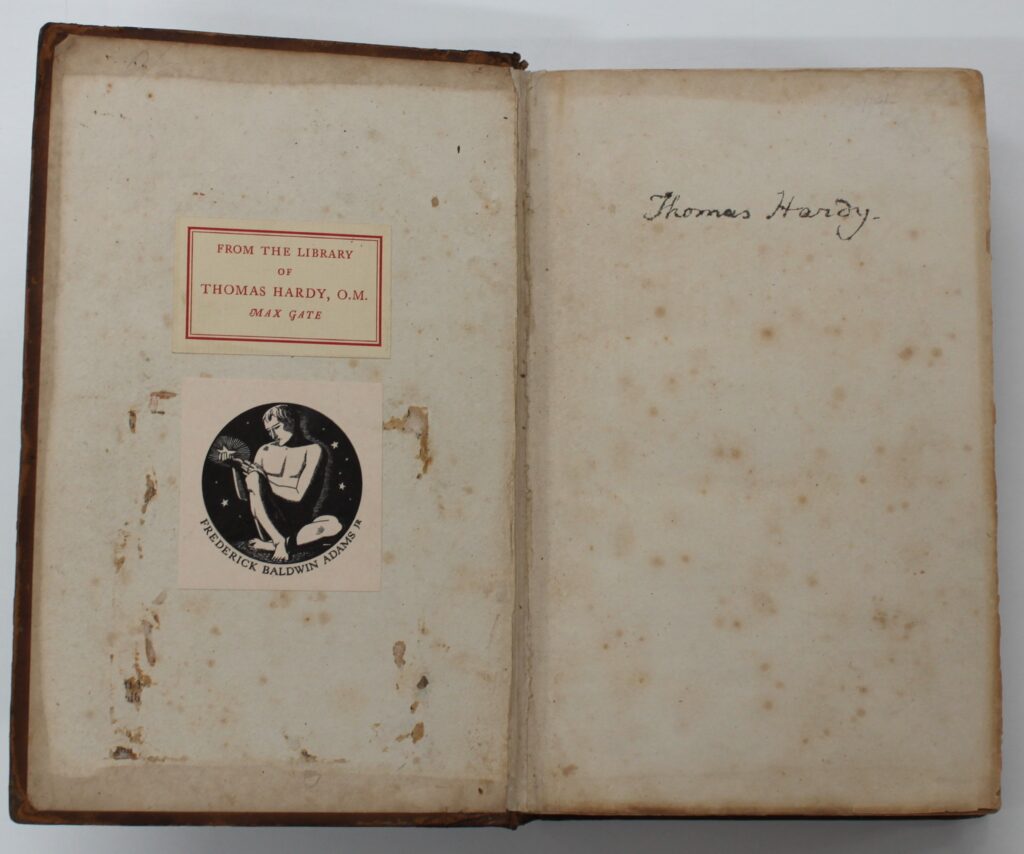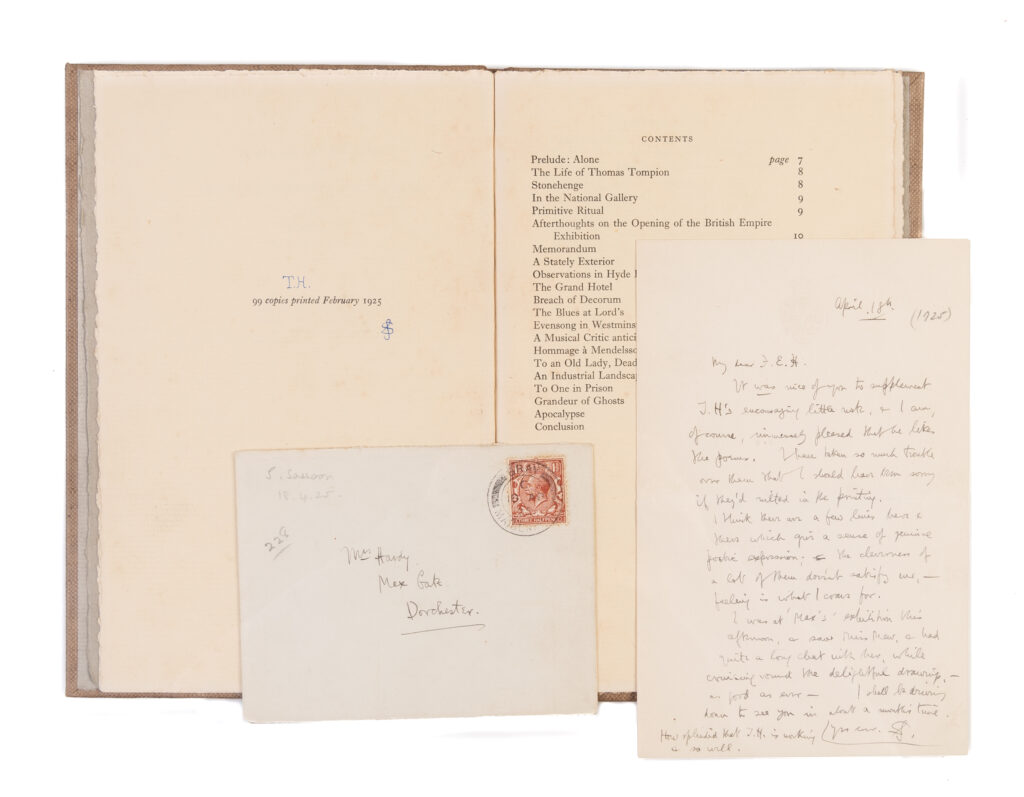The purchase in December 2020 of a collection of important documents and printed books relating to Thomas Hardy was one of the highlights of last year – a year in which it was at times difficult to feel optimistic. In an earlier blog, parts of the collection were described and we will now examine other items which cast light on Hardy and the context in which he wrote.
—
The collection is decidedly eclectic which reflects the ad hoc manner in which its elements were gathered together. Amongst these are a number of printed books, many of which are annotated by Hardy. One such is Trumpet and Bugle Sounds for Mounted Services (1870)– a rather specialist publication, but one that in a period that pre-dated Google, we assume Hardy would have consulted when writing The Trumpet Major. Another printed item is Hardy’s copy of A Village Tragedy by Margaret Woods (1889) described by Oscar Wilde as ‘one of the most powerful and pathetic novels that has recently appeared’. With its rural setting and themes of doomed love, it is possible to see why Hardy may have been attracted to it.

Another slightly (on the face of it) esoteric item found within the collection is A.M. Broadley’s Dr Johnson and Mrs Thrale including Mrs Thrale’s unpublished Journal of the Welsh Tour made in 1774 (1910). This was presented to Hardy by the author who was a significant figure in the dramatisation of Hardy’s works for the stage by the Dorchester Dramatic and Debating Society; the inscription in the volume marked ‘the memory of the last rehearsal of Far from the Madding Crowd…Nov 21 1909’.
A well-used copy of Broadley and Bartelot’s Nelson’s Hardy (1909) also forms part of the collection. The work, which focuses on Captain (later Admiral) Thomas Masterman Hardy of Portesham who commanded Nelson’s flagship Victory at Trafalgar is dedicated to Thomas Hardy whose works
‘have done so much to awaken public interest in the stirring times during his gallant Dorset namesake fought for his country’.
Richard Bartelot became Vicar of Fordington and was a notable antiquarian whose own library was sold in the 1950s.
Hardy was clearly the recipient of many books – presented to him as the ‘great man of letters’. Another volume of this ilk is the copy of S. F. Pells’ Great Texts of the Bible (1911) which he offered to Hardy ‘in commemoration of our respective birthdays 1840-1912’. The volume appears to have come from the library of Richard Bartelot (see above) who himself acquired it from Hardy. He noted: ‘Thomas Hardy’s Copy – Thomas Hardy was my parishioner at Dorchester 1906 till his death’.

A more notable author who presented their work to Hardy was Siegfried Sassoon who sent Hardy a copy (one of only 99 privately printed) of his Lingual Exercises for Advanced Vocabularians (1925). Sassoon, clearly an admirer of Hardy wrote to Florence Hardy in an accompanying letter that
‘I am immensely pleased that he likes the poems’.
It is clear that many authors, aspiring and established sought Hardy’s seal of approval on their work. The volumes within this collection are only a tiny part of Hardy’s library, much of which was bequeathed to Dorset County Museum. The range of sources and subjects Hardy was exposed to was wide and varied. These items sit alongside the thousands of others at DHC written by or about Hardy and can be consulted when we re-open to the public.

